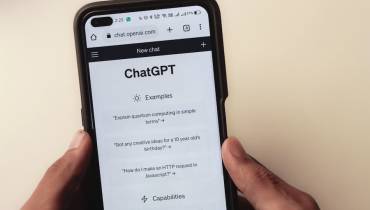How to Keep Yourself Accountable as a Freelancer

Freelancers across different fields and specialties from freelance writers to freelance designers and freelance photographers cite "being your own boss" as one of the perks of freelancing.
Being your own boss means you have the freedom to create your own schedule and develop a workflow that works for you. It is a top freelancing benefit many freelancers covet.
But this perk is also one of the most difficult things about freelancing. Without a boss looking over your shoulder, monitoring your productivity, you have to hold yourself accountable.
So, how do you hold yourself accountable as a freelancer and someone who is your own boss?
Developing Accountability as Freelancers
Accountability is something I’ve had to grapple with. In fact, it’s still something I practice daily. When you are accountable, you take responsibility for your actions, behaviors, performance, and decisions.
Accountability is essential to become reliable, consistent, and professional. As a freelancer, accountability creates a sense of trust and reliability, both with your clients and with yourself.
Here are three tips that have helped me the most to hold myself accountable as a freelancer:
1. Create and stick to a schedule
When I started working at home, it was tempting to sleep in, get to my desk late, and make up the missed work at night. I actually thought I worked better at night. After a few months of this schedule, I began to realize I got less done after dark and it was even harder to form sentences.
Turns out, I do my best work early in the morning and the earlier I get up, the more productive my day is. Also, if I work earlier in the day, I enjoy my evenings without the dread of going to work afterward.
Now, I try to keep my schedule as much like a traditional job as possible. On most days, I start work at 8 a.m. and end at 5 p.m.
When I say "start work," I mean I'm at my desk, in front of my computer, with my project document open. Whether or not I want to work on it.
I’ll be honest; sometimes I have no motivation to write about anything. But, I’ve found that once I sit down and start trying, the words eventually come.
Of course, the whole point of being self-employed is setting my own schedule, so I'm flexible. If I have an appointment or want to take a day off, I schedule it.
The trick is making sure you're still working enough hours to get everything on your list accomplished. Some weeks, I have to work more to meet all my deadlines. Then, some weeks I purposely keep my workload light so I can have some short days and days off.
Once I set a schedule for the week, I do my best to stick to it. If something fun comes up during my scheduled working hours, I usually say no. This takes self-discipline and practice, but I’m getting better every week.
2. Review your goals often
Why are you a freelance writer? You might have a common reason like wanting to escape the cubicle or maybe you have a completely unique reason.
Whatever it is, as we begin to work for clients, it can be hard to remember why we choose this life and what we're aiming for. Our own goals can sometimes take a back burner.
That's why, as I'm setting my schedule for each week, I review and commit to my goals. I make sure the projects I'm taking on and my to-do list reflect my goals.
Some goals — like earning a full-time income freelancing — are achieved by running my web-writing business.
But other goals — like building a successful side business — can get pushed to the side if I take on too much client work. Reviewing my goals often ensures I make steady progress and keep my motivation up.
If your answer for why you’re a web writer isn’t immediately obvious, take some time to figure it out. It will directly impact your motivation to know what you’re working toward.
Remind yourself that by sitting down to work, you're getting closer to your goals and the life you want to live.
3. Work from a to-do list
In addition to reviewing my goals and sticking to a schedule, I keep a to-do list for every day. Mostly it’s electronic, but if I’m having a hard time focusing, I find it helps to write down the three most important things I have to do that day.
If my list is more than a few tasks long, I’ll get distracted, bounce from task to task, or try to multitask.
Here are a few task-list tips:
- Write everything down. No matter how small a task or point seems, if it’s using brainpower, write it down. Once it’s on the paper, you can forget about it and focus on something else.
- Schedule blocks of time for small tasks. If I have a long list of things to do, I find I’ll procrastinate by rearranging it. To overcome this, I schedule time blocks each week to tackle the little things. These are things that might take less than 15 minutes and I’ll schedule a block that’s at least an hour long so I can knock 4-6 things off my list.
- Create tomorrow's to-do list today. I find this helpful because I can start work each morning knowing exactly what needs to be done. Also, I’ve found that when I create tomorrow’s list today, I’m a lot more likely to stick to it and get everything done.
In conclusion
When it comes to accountability as a freelancer, there are many great techniques. You could use deadlines and rewards or even an accountability group. But, even the best techniques will fail if you don’t have the self-discipline to stick with it.
Working from to-do lists is the best way I’ve found to remember what needs to be done so when it’s time to work, I know what to work on. Creating a schedule helps me make sure I’m working enough hours to achieve everything I have in mind. And, reviewing my goals weekly keeps me motivated to stick to the schedule and cross items off the to-do list.
What about you? What techniques do you use for keeping yourself accountable?


















![Going On a Camping Trip? Common Problems to Prepare for [node:title]](/sites/default/files/styles/video_thumbnail_bottom/public/u134/prepare-for-common-camping-trip-problems-beforehand.jpg?itok=kMCs9P5b)

